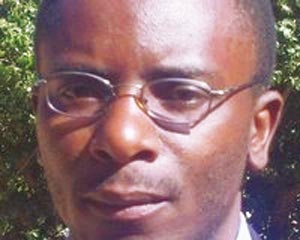
“Whether you think you can, or you cannot, you are right.” – Henry Ford
SMEs Chat with Phillip Chichoni
The Richest Man in Babylon by George S. Classon is one of those books every entrepreneur should read if they want to succeed in business.
There is a story about Arkard, a rich wise man who, seeing that he was old, decided to groom his son Nomasir to inherit his wealth.
Instead of following the usual custom of letting the son live in the family home until the father died, Arkard decided to send his son out into the world for 10 years to learn business.
He gave his son a bag of gold and a tablet of clay onto which he had carved out five laws of gold. Nomasir went out into the world.
The first people he met were conmen. They led him to bet on a useless horse and Nomasir lost some of his gold. The second person he tried to do business with was a lazy and foolish spender and their venture soon went down.
With only very little of his original gold left, Nomasir tried to look for a job but having no skills or training, he found none. Finally, after Nomasir had spent all his gold and sold the rich clothes he had, he decided to read the clay tablet. The words were as follows:
- Chamisa under fire over US$120K donation
- Mavhunga puts DeMbare into Chibuku quarterfinals
- Pension funds bet on Cabora Bassa oilfields
- Councils defy govt fire tender directive
Keep Reading
Gold cometh gladly and in increasing quantity to any man who will put by not less than one-tenth of his earnings to create an estate for his future and that of his family.
Gold laboreth diligently and contentedly for the wise owner who finds for it profitable employment, multiplying even as the flocks of the field.
Gold clingeth to the protection of the cautious owner who invests it under the advice of men wise in its handling.
Gold slippeth away from the man who invests it in businesses or purposes with which he is not familiar or which are not approved by those skilled in its keep.
Gold flees the man who would force it to impossible earnings or who followeth the alluring advice of tricksters and schemers or who trusts it to his own inexperience and romantic desires in investment.
The lessons on the clay tablet are significant for anyone who wants to build a sustainable business. But why do so many fail to learn from them, as seen by the number of businesses that are going down due to poor management?
In his recent book Leadership and the Art of Struggle: How Great Leaders Grow through Challenge and Adversity, Steven Snyder tells us about how neuroscience identifies mindsets. There are two types of minds, he writes, a “fixed” mindset and a “growth” mindset. Beginning at a young age, we are conditioned to develop a fixed mindset. As adults, we at some point told a youngster who had done something well that “You are so clever!”
Such messages build a belief in the youngster: that is his or her inherent smartness that leads to good performance, not the effort exerted. This belief becomes forged with a person’s identity as they grow up. When things go well, we think it is because of how smart we are. When things do not go as well as expected, we begin to doubt our capability. We tend to think of capabilities such as problem-solving, communication skills, and leadership as fixed and stable over time, hardwired by our genes.
When we suffer setbacks or make mistakes, we associate it with our lack of natural ability. This can diminish our confidence and build up negative emotions as we compare ourselves unfavourably with others instead of thinking about creative ways of improving our performance.
The fixed mindset can also be detrimental when things are going well. We tend to attribute success to our natural born ability rather than to effort and learning. As a result, we tend to pursue less challenging tasks at which we are assured of success, rather than learning new things and pursuing more challenging assignments.
To succeed in entrepreneurship, we need to develop the opposite of the fixed mindset, which is the growth mindset. The growth mindset is awareness that capability is not a natural trait, but a flexible quality that can be improved upon through continuous learning, practice and persistence. As was said by Frank Gaudette, a former executive at Microsoft, “You deserve to wake up smarter every day.”
The economic environment we are in calls for the deep traits of entrepreneurship, which are huge ambition, imagination, persistence, passion and conviction. It also calls for extraordinary competence in business skills, planning, customer acquisition and retention, relationship building and financial management if one wants to survive and grow. There is nothing that you are not capable of, if you have the mindset for success. So what are you going to learn today, this week, this month and this year that will help you accelerate your growth?
Phillip Chichoni is a business development consultant who works with SMEs and entrepreneurs. You may contact him by email: [email protected]. You can also visit: http://smebusinesslink.com











